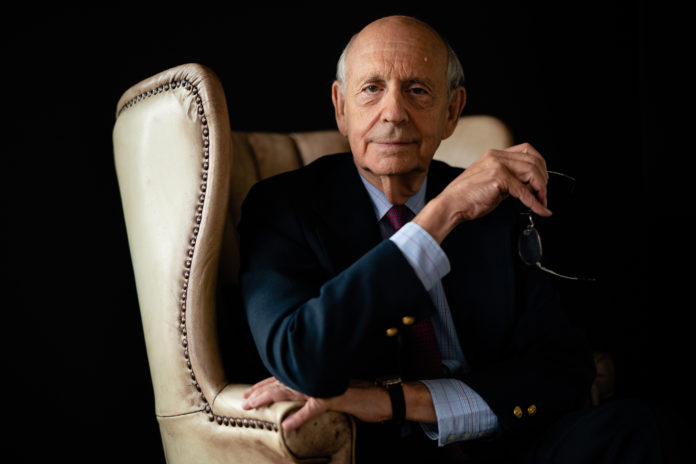A sour taste was left in some mouths back in January, after Supreme Court Justice Stephen Breyer announced his retirement from the Court and President Biden pledged to nominate a black woman to assume his seat.
There is something to be said for diversity among those serving on the nation’s highest court. But, personally, I would have experienced the same distaste had there never been a Jewish justice before and a president pledged to pick a member of the tribe. The nominee should be the most qualified candidate, without his or her race, religion or ethnicity as factors.
In truth, though, there is no such thing as “the most qualified candidate.” There can be many equally eminently qualified candidates. So, even if a president sought a Samoan-born, hard of hearing, left-handed candidate to further diversify the Court, as long as the requisite credentials and talents were there, fine with me.
So, does Ketanji Brown Jackson, the president’s nominee, have what it takes to be a Supreme Court justice?
Her background is certainly impressive. She graduated magna cum laude from Harvard College and cum laude from Harvard Law School. She has gotten high marks as a public defender and a federal district judge. Justice Breyer has described her as “brilliant,” a “mix of common sense and thoughtfulness.”
(Fun Fact #1: Judge Jackson credits a Jewish high school debate coach for helping her learn “how to reason and how to write,” and for giving her “the self-confidence that can sometimes be quite difficult for women and minorities to develop at an early age.”)
Judge Jackson is married (to a surgeon, who, in contrast to her, is white and male) and has two daughters. (Fun Fact #2: Dr. Jackson’s twin brother is married to former House Speaker Paul Ryan’s sister-in-law. Fun Fact Footnote: In 2012, Mr. Ryan told the Senate Judiciary Committee that, although his and Ketanji Jackson’s “politics may differ,” his “praise for” her “intellect, for her character, for her integrity, is unequivocal.”)
But what of the nominee’s jurisprudential record?
Well, she sat on an appeals court panel last December that rejected former President Trump’s assertion of executive privilege over the release of White House records concerning the January 6 attack on the Capitol to a House committee. In 2019, she rejected the argument that close advisers of the president had “absolute immunity” from congressional subpoenas.
On the other hand, she backed the Trump administration in a suit brought against it by an environmental group seeking to block construction of a 20-mile segment of the border wall with Mexico in the state of New Mexico.
Worthy of general note is that, in 2016, she recused herself from a case challenging the US Department of Education’s assault guidelines, since she was “serving on the board of a university that was evaluating its own potential response to those guidelines.”
With regard to religious matters, in 2014, Judge Jackson dismissed complaints of judicial misconduct against a federal appeals court judge for having advocated, in a lecture, personal religious views as a basis for justifying the death penalty.
In 2017, Judge Jackson issued an opinion allowing the religious discrimination claims of a United States Postal Service employee—whose position he says was abolished because he played religious music at work—to go forward.
And, in April 2021, the judge faced questions about her service on the board of a private Christian School in Maryland whose “statement of faith” professed conservative moral values. The judge averred that she does not “necessarily agree with all of the statements” of institutions on whose boards she has served, but she stressed that “I do believe in religious liberty,” calling it a “foundational tenet of our entire government.”
Having clerked for the man whom, if confirmed, she will be replacing, Judge Jackson will likely be part of what is regarded as the liberal wing of the Court.
How the nominee, though, if confirmed, will treat religion-related cases that will come before the High Court—what balance she will strike between the First Amendment’s protection of religious rights with laws limiting religion-based expression—can’t be known, of course. But there’s room for cautious optimism. And, considering that she will be the second-youngest Supreme Court justice, it may well prove critical to the future of American society.


























